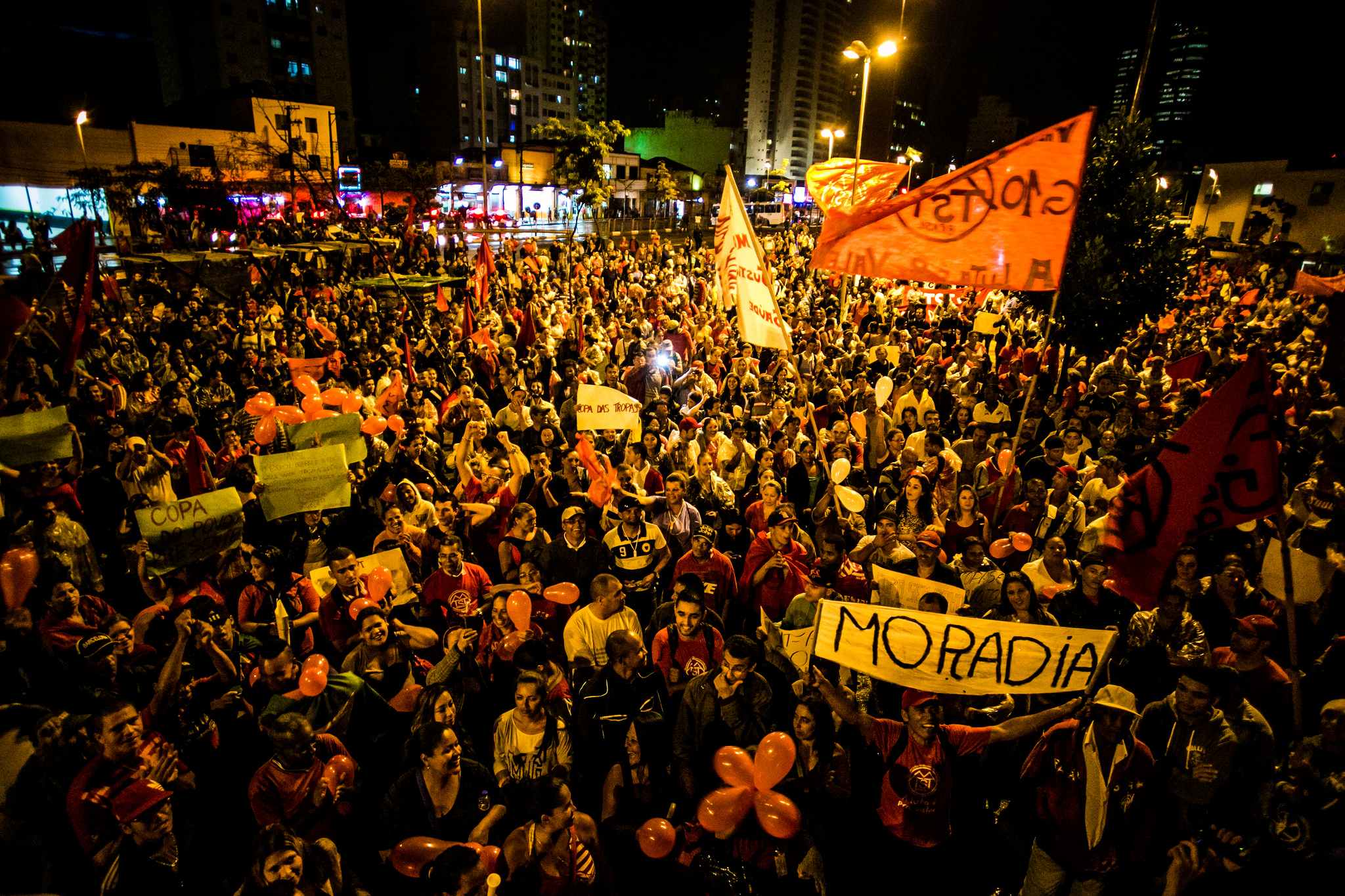Right to protest

Freedom of expression and freedom of assembly are intrinsic to democracy and must be respected and protected by the State. Social protests are part of the Brazilian political scene and the history of the country.
Mobilisations against the military regime, the Directas Já, the movement of the “painted faces”, the Marcha das Vadias, the LGBTI Pride Parade, and marches by agrarian reform and housing are some of the highlights of the last decades.
In 2013, the infamous “Jornadas de junho” took thousands of people to the streets and shook the comfort of political elites. A series of popular demonstrations that took place in the main capitals and other cities in the country also highlighted, above all, the lack of preparation of the political authorities and, especially, of the public security forces to deal with such popular mobilisations.
Without supervision and advocacy from civil society organisations, the police – sometimes with full support from the political and public authorities, such as the Public Prosecutor’s Office – feel acceptable to use excessive force while protesters march “without violence”.
We can no longer permit police violence and power abuse against demonstrators and omission of authority over law enforcement agency to remain as usual. Besides arbitrary arrests, intimidation of persons or professionals filming or photographing, abuse of non-lethal weaponries, unlawful use of lethal weapons, lack of agent identification, and criminalisation of movement can no longer repeat in protests.
Therefore, Conectas denounces these and other form of abuses of the law enforcement agency and acts at national and international level to hold the perpetrators responsible for these atrocities and encumber the State for its omission or even involvement in such acts.


